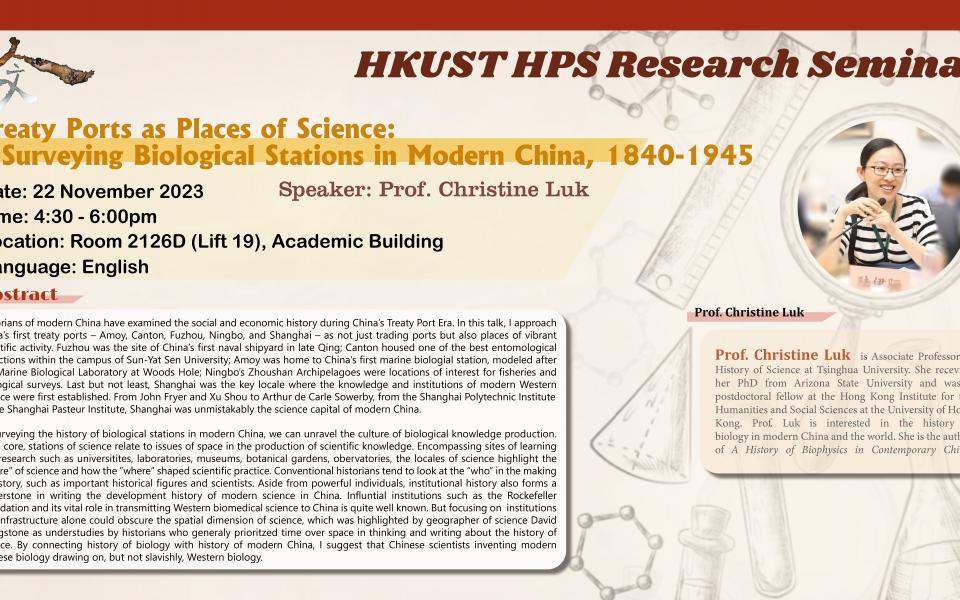Abstract:
Historians of modern China have examined the social and economic history during China’s Treaty Port Era. In this talk, I approach China’s first five treaty ports––Amoy, Canton, Fuzhou, Ningbo, and Shanghai––as not just trading ports but also as places of vibrant scientific activity. Fuzhou was the site of China’s first naval shipyard in late Qing; Canton housed one of the best entomological collections within the campus of Sun Yat-Sen University; Amoy was home to China’s first marine biological station, modeled after the Marine Biological Laboratory at Woods Hole; Ningbo’s Zhoushan Archipelagoes were locations of interest for fisheries and ecological surveys. Last but not least, Shanghai was the key locale where the knowledge and institutions of modern Western science were first established. From John Fryer and Xu Shou to Arthur de Carle Sowerby, from the Shanghai Polytechnic Institute to the Shanghai Pasteur Institute, Shanghai was unmistakably the science capital of modern China.
By surveying the history of biological stations in modern China, we can unravel the culture of biological knowledge production. At its core, stations of science relate to issues of space in the production of scientific knowledge. Encompassing sites of learning and research such as universities, laboratories, museums, botanical gardens, observatories, the locales of science highlight the “where” of science and how the “where” shaped scientific practice. Conventional historians tend to look at the “who” in the making of history, such as important historical figures and scientists. Aside from powerful individuals, institutional history also forms a cornerstone in writing the developmental history of modern science in China. Influential institutions such as the Rockefeller Foundation and its vital role in transmitting Western biomedical science to China is quite well known. But focusing on institutions and infrastructure alone could obscure the spatial dimension of science, which was highlighted by geographer of science David Livingstone as understudied by historians who generally prioritized time over space in thinking and writing about the history of science. By connecting history of biology with history of modern China, I suggest that Chinese scientists inventing modern Chinese biology drawing on, but not slavishly, Western biology.
Biography:
Prof. Christine Luk is Associate Professor of History of Science at Tsinghua University. She received her PhD from Arizona State University and was a postdoctoral fellow at the Hong Kong Institute for the Humanities and Social Sciences at the University of Hong Kong. Prof Luk is interested in the history of biology in modern China and the world. She is the author of A History of Biophysics in Contemporary China.
HKUST History and Philosophy of Science (HPS) Research Seminar is an in-person seminar series on history and philosophy of science, convened by Yafeng SHAN (HUMA, HKUST). It aims to provide a forum for discussion of cutting edge research on history and philosophy of science.
